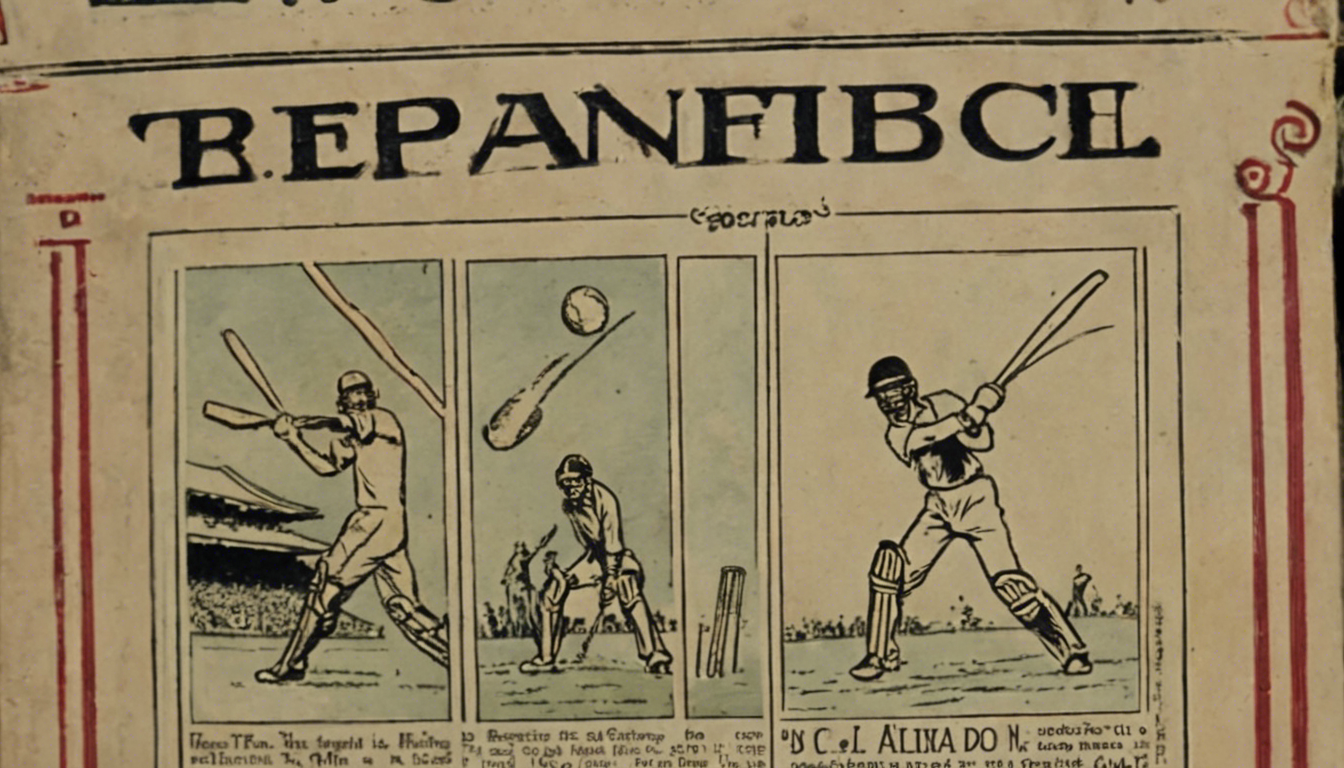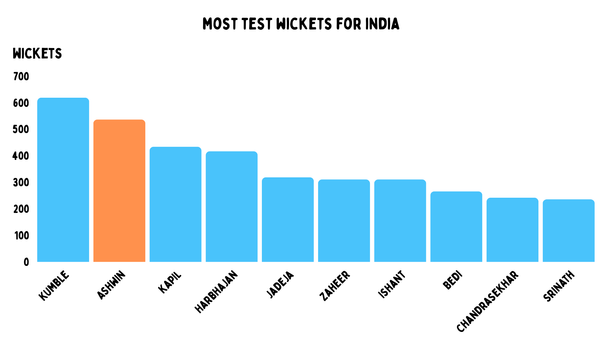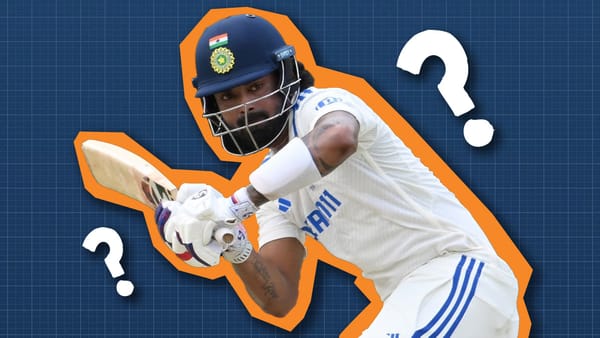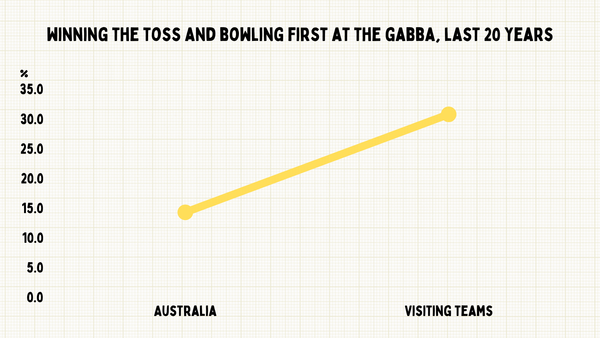The Athletic for cricket
Looking at cricket writing in the modern world.

Every few weeks, I get a message from someone asking, "Have you thought about setting up the Athletic for cricket?"

For those who don't know, the Athletic changed sports coverage in the US. They started as a subscription model in American sports that hired the biggest names in local journalism so that if you wanted to follow your team, or all the teams in your city, they had the best people.
In some ways, it was a tech solution to the problem of buying multiple newspapers. But it also meant that one place had many talented writers, all of which you could get their articles on. And often on specialist topics.
Previously, sports were covered in this generalist way through newspapers and then sites like ESPN, BBC, and others. Even if you were the beat writer for your team, you had to cover the team in a way some non-fans would want. The problem with this becomes more extreme every year as fans are now more educated about their team through stats, fantasy, podcasts and social media. They don't want another generalist piece about their star being good, or their coach sucking. They want to know the replacement options at right-back or what player on the bench can play better defence.

How does this apply to cricket? Well, ESPNcricinfo is the main player in cricket writing, and it was set up to cover the sport for hardcore cricket fans (it's one reason scaling up in the modern world has been hard for them). So they are a slow-moving giant company that covers cricket in a way that targets a huge existing audience.
Then you have CricBuzz, an Indian-centric publication stuck between wanting to write Cricinfo articles and pleasing the more hardcore Indian fan audience. While it has some quality writers, its coverage is too limited.
It is not easy for either of these places to change with the modern world, as both are successful already. It would take a massive reshape. And these are really the only two major cricket publications we have.

There are smaller places like Crictracker, Cricket.com, and the Cricketer, which are all trying to achieve things with limited funds or editorial guidance at times. Most of the other cricket specialist sites are aggregators like crictoday, cricxtasy, cricadda, cricinformer, crickaddictor, circleofcricket; I could go on. While I am sure on occasion there is decent staff there, no one is using them as a trusted or regular source.

A few years back, this didn't matter, as there was a sweet spot before paywalls came in and Twitter was not ruined. If you scrolled through what they now call X, you would find all the best articles, and then follow the writers there. But since then, actually following good cricket writing is really tough.

So, would the Athletic model work in cricket? Yes.
Most cricket writers in the world are comically underpaid compared to other sports. Buying a great stable of cricket writers would be very easy. And while cricket is more global than ever before, most people still care about only their team.
Yet, the coverage is terrible if your team is not England or India. Even in those nations, you still need to collect a lot of the best stuff from random places.
Let’s look at few obvious problems. There are no beat writers for IPL teams. (This was insane before the owners started buying other franchises, but now it is incredible). But it goes further; there really aren't any beat writers outside the major teams. There are a handful of full time cricket writers in Australia who don't work for CA. New Zealand has no full-time cricket writer; the West Indies are the same. The major sites don't have proper women's coverage, nor do they have full time T20 specialists. And franchise cricket outside the IPL doesn't seem to exist. There is almost no fantasy cricket writing (despite many YouTube channels with huge followings), and is any billion-dollar industry written about less than betting in cricket? Oh, what about the business of cricket? Almost no cricket writers work on that full-time, either.

The best cricket writers are working on match reports and going to press conferences waiting for players to give them a quote they can spin into a second news-led piece. Some of the best young minds in cricket writing have to spew out pieces about a barely thought-out tweet from some ex-player.
The industry is not working.
Let's take England, because that is a fascinating cricket market. If you start with the BBC, a company linked to cricket for well over half a century, they have laughably few full-time cricket writers. So outside of cool video clips and TMS (which they do well), BBC is not really your place for cricket knowledge or hardcore fandom. Then you have the newspapers, the Telegraph still have a deep and broad team, but you need a subscription. If you want to read Mike Atherton at the Times, you need another one. George Dobell is hidden behind another paywall. Then you have the Guardian, which has a lot of great writing but usually from sports generalists. The editor of Wisden (Lawrence Booth) writes for the Daily Mail, where Nasser Hussain does ghostwritten content.
Talent isn't the problem here, but trying to keep up with this requires a lot of subscriptions, searching, and buying newspapers.
But it also means they all end up writing the same kinds of news or opinion-based generalist pieces. This is a huge waste of talent, and the same could be said of India's writing talent as well. In Australia, the best cricket writers spend much time on whatever football code works for them.
So if this is the big three market, you can only imagine what is happening elsewhere.

Also, as a former Cricinfo person who now runs a business that aims for a similar hardcore cricket audience, I can see in my numbers how desperate people are for coverage of their teams. If I cover South Africa in a series, our numbers get a massive boost from that region. But when I go on to another tour, they disappear. They don't want to hear about Tom Hartley; they want Dane Piedt takes.
The audience is there; the Athletic Model would work in cricket and is just what the entire industry needs.
Recently Tarutr Malhotra wrote a piece about what cricket writing is now based on coverage of the World Cup. It is not a pretty sight. Most cricket writing is aimed at SEO and not audience retention. It doesn’t really tell you anything about the game at all.
In the last few years, I have been promised money to do an athletic for cricket, or at least, a model of my own making (more a combo of SB Nation/Locked on Network with the Athletic, but very much twisted to work for a cricket audience). Sometimes I have got very advanced. At others, it was just coming up with a basic plan. I have a depth chart of writers about different teams and beats that I always add to. I have made advanced budgets up for this three times at least.

I went one step further as a co-founder of 99.94. We actually started our network. Starting with the podcast and video side, but it is all the same idea. Get smart people to talk and write about their beat in the most in-depth way, content that is made for fans, not for SEO or social media algorithms. In the 2022 World Cup, we had six or seven podcasts running, and we got over 500,000 views/listens organically on a shoestring budget that finally ran out.
We proved the concept could work, that people from smaller (and bigger) countries with bad markets were desperate for proper coverage of their sides, and that cricket-led chat was as important as a former player yelling.
People are obsessed with their cricket team, and they need coverage that is on that level as well. The cricket media as a structure is failing them. The people who love the game the most are treated the worst.
The Athletic model (or themselves, they were one of my chats before they were sold to the NY Times) would work for cricket. It would also improve cricket writing by ensuring more money is being paid to professionals. It would show that SEO trends don't build a proper audience and allow many smart cricket writers worldwide to actually talk about the game.
It is not cheap; my guess is that to do this anywhere near properly, you are looking at a minimum of 2 million a year USD. But for that, you could have an app where millions of fans would be drawn. Not to mention endless video/podcast/social content. You can make money back instantly through a low subscription model, plus podcast and YouTube advertising. There is also a three-pronged advertising plan when you factor in the kind of content you can make (local/national/global).
The money isn't nothing, but we are talking about the second-biggest sport in the world (based on Google searches). Even 3-4M a year is a small investment in what could be a huge business; cricket isn't getting smaller.
Before The Athletic, I came up with a similar business plan in 2012. Since then, I have spoken to so many people about it. The vast majority get it, and agree it is worth doing. And I have been hustling around in the shadows while growing my business.
I’ve gone public now because of the Cartoon Bluey, and how they showed cricket in one episode. And it struck me that we are terrible at highlighting what is great about our sport. Maybe I would have kept hustling behind the scenes and made this work. But I just want it to exist.
Because how we write, talk and promote our cricket matters. Bluey (and Rusty) reminded me of that. And right now, I would say media around our sport is not set up to help it grow to shine.
I don't care if it's the Athletic model or something else. Or whether I am involved or not. But I want cricket media to improve, most of all to inspire a love of the game. The reason cricket matters is because of the passion of the fans, and at the moment, they aren't getting what they deserve.




